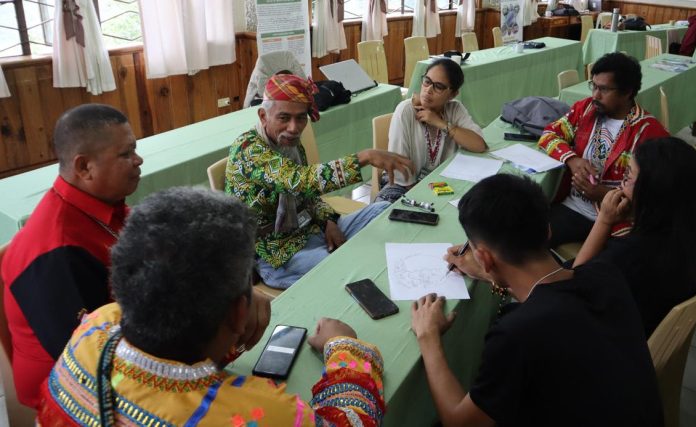Indigenous leaders from across the Philippines gathered in Bontoc from June 17 to 20 to affirm their commitment to protect nature and ancestral territories.
More than 60 participants from Luzon, Visayas, and Mindanao took part in a four-day national dialogue themed “Ugnayan at Talastasan ng Katutubong Komunidad Ukol sa Inang Kalikasan” (Dialogue and Solidarity of Indigenous Communities on Mother Nature).
They issued the Bontoc Declaration: A Declaration of Stewardship and Sacred Responsibility, asserting their collective role as caretakers of nature and defenders of Indigenous rights.
The gathering spotlighted the link between Indigenous knowledge systems and the global campaign for the Rights of Nature, rooted in respect for ecosystems and traditional land governance.
“It is unfair to be marked as one of the drivers of forest or land degradation, when in fact it is the corporations mining, logging, or quarrying that inflict significant harm to our environment,” said Rafe Laluma, an Indigenous leader from Antique. “And when we fight for our lands, we are called communists or subversives.”
Participants denounced the criminalization of Indigenous land defense and highlighted persistent threats like land grabbing, pollution, deforestation, and displacement caused by state-sanctioned development projects.
They rejected claims that traditional farming systems such as kaingin are destructive, asserting instead that these practices protect biodiversity and sustain Indigenous ways of life.
The gathering encouraged the use of citizen science — combining local knowledge with modern tools — to monitor environmental damage and assert Indigenous control over ancestral lands.
“The Rights of Nature is redefining our modern human relationship with nature,” said Yolanda Esguerra, National Coordinator of the Philippine Misereor Partnership Inc. (PMPI).
“Our Indigenous peoples can help us recover the right relationship with Mother Nature, one that is deeply rooted and connected with her,” she added.
Nathalia Greene, Executive Director of the Global Alliance for the Rights of Nature (GARN), emphasized that Indigenous peoples have long understood the inherent rights of rivers, forests, and oceans.
“These are natural laws. And we are part of them. So we must act now, and our efforts to recognize the rights of nature give us a chance to do that,” Greene added.
Casey Camp Horinek, a Councilwoman of the Ponca Tribe of Oklahoma and member of GARN’s Council of Elders, said the event was “a huge step in the right direction.”
She urged participants to respond to “Mother Nature’s call” and join the global movement to defend her.
Bishop Valentin Dimoc, Chair of the CBCP Episcopal Commission on Indigenous Peoples, said Indigenous spirituality fosters harmony with the environment.
The event was organized by PMPI, Rights of Nature PH, and the CBCP Episcopal Commission on Indigenous Peoples, in partnership with GARN and allied NGOs.
The Bontoc Declaration calls for urgent, united action against environmental destruction, while honoring ancestral wisdom and Indigenous leadership in the global movement to restore ecological balance.









